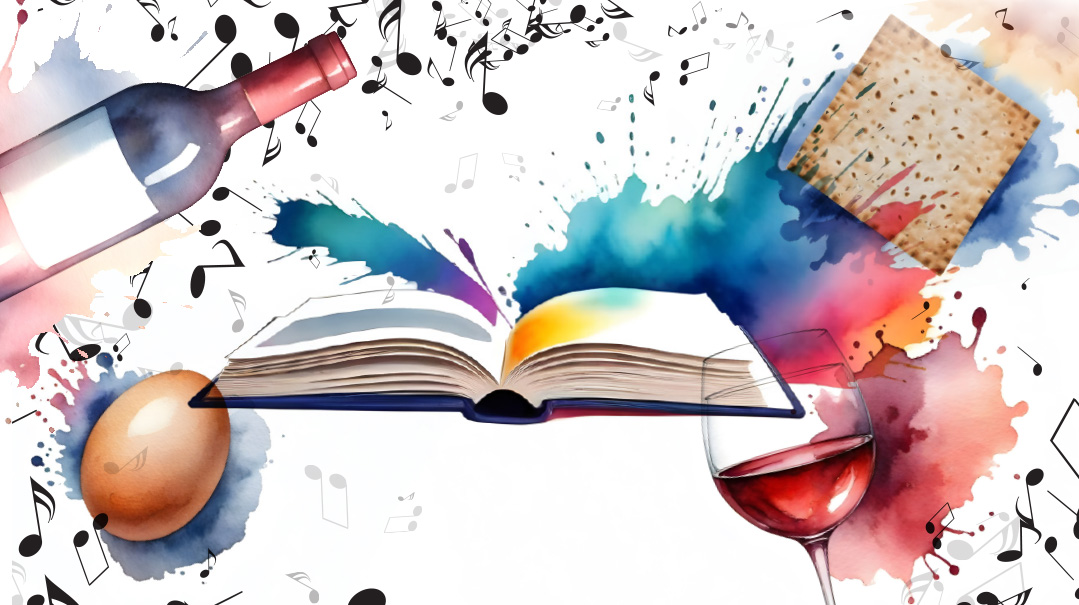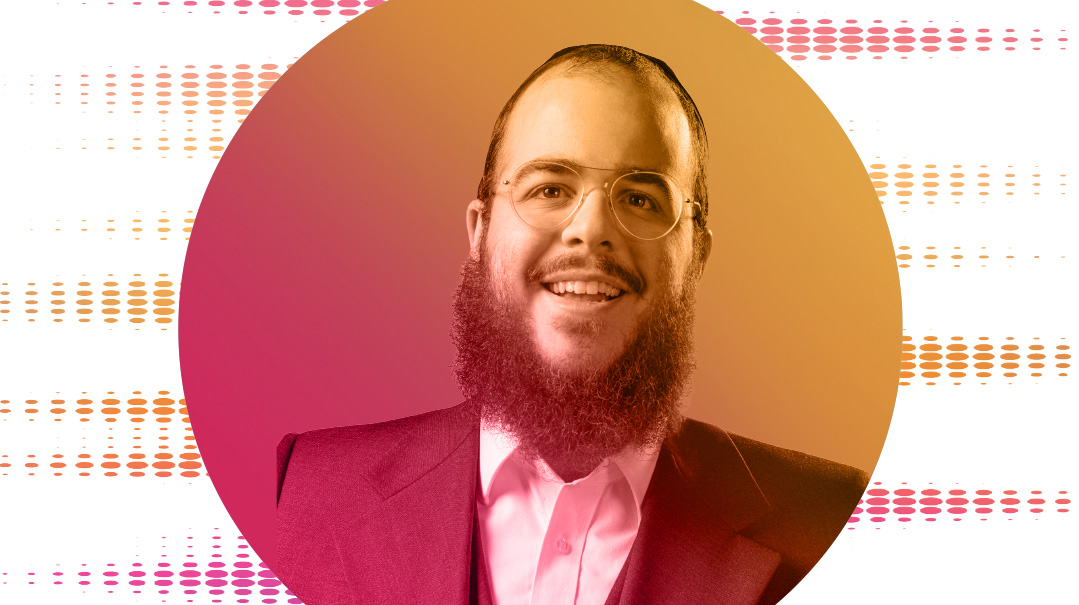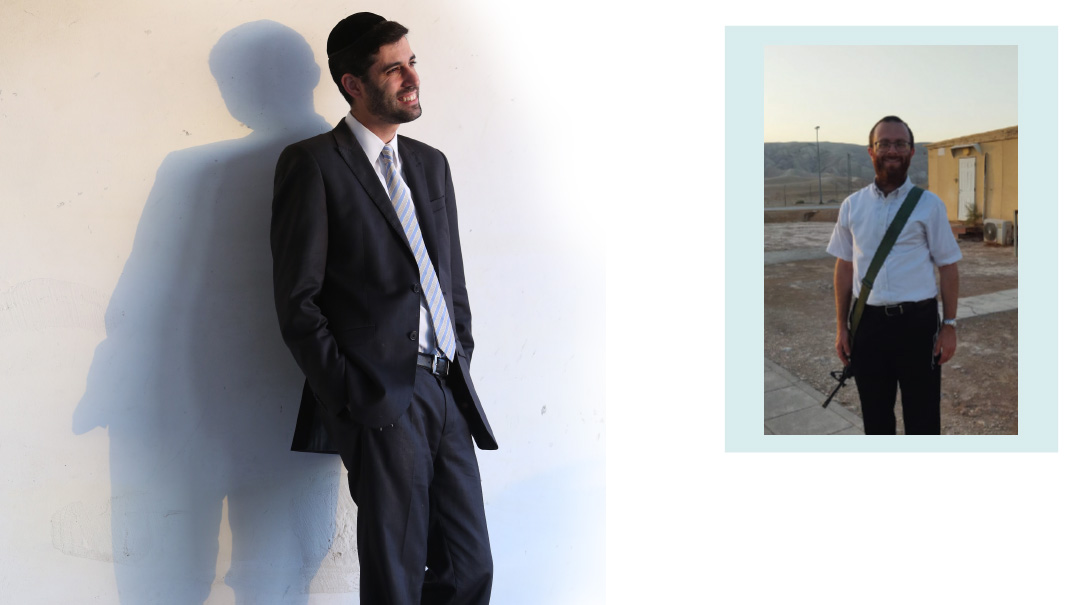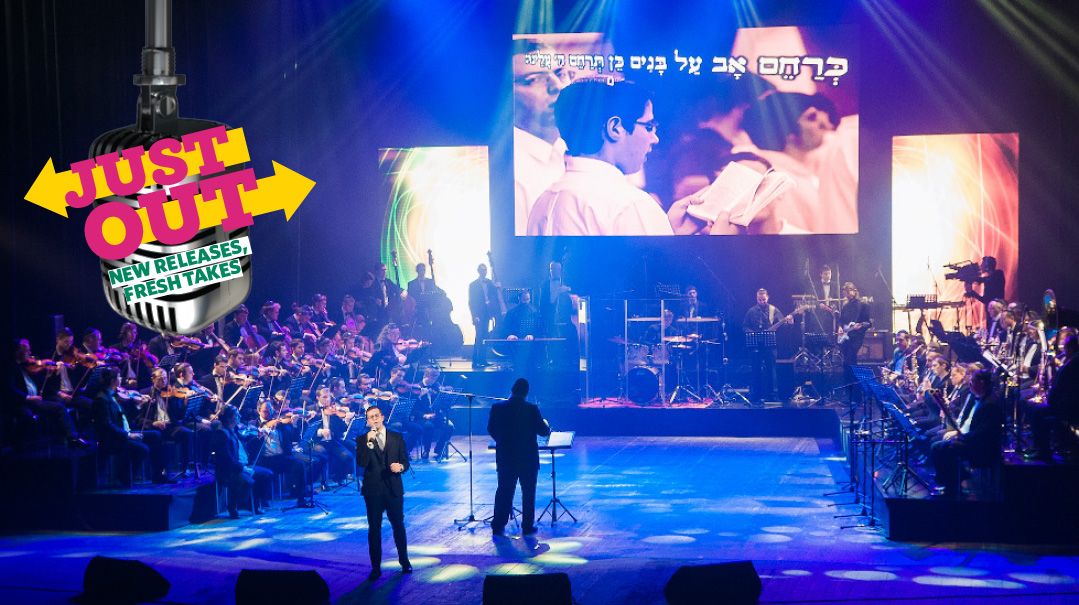Freezing Hands, Heated Hearts
| January 8, 2020F
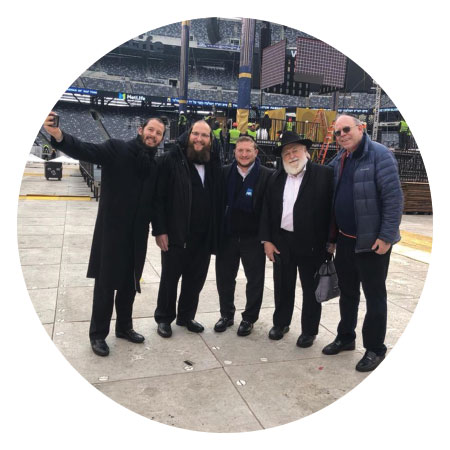
“I looked around, and I couldn’t see anyone just standing still. Everyone — every single guy there — was moving, dancing. So I just sang, danced, and screamed along with them,” says Shloime Daskal. “The energy was incredible. It wasn’t about any of our particular voices, although I think they blended and harmonized beautifully. Before I started singing, I was shivering. By the time I finished, I was perspiring.”
Daskal joined together with Reb Abish Brodt, whose well-known hartzige voice has enhanced the past few Siyumim, Baruch Levine, and Shloime Gertner. They were accompanied by Shloime Dachs’s orchestra, Chilu Posen with the Mezamrim CHOIR, and the Yingerlach children’s choir.
The day at MetLife began with a rehearsal at 7:30 a.m. The group had practiced together on-site the day before as well. “I can’t explain to you how cold it was when we arrived in the stadium early in the morning,” says Shloime Daskal. “The temperatures were in the low thirties. My feet were numb and it was hard to touch the metal of the mics. But it’s like if someone is a good driver, he can drive not only in good weather, but when it’s snowing too.”
The pianist, Shloimy Saltzman, says that he came prepared, wearing fingerless gloves with warming pads inside. Chilu Posen, who led the choir, says that he was bundled up, but despite the bitter weather, once he was singing he didn’t feel any cold. And the spiritual warmth in the stadium could be felt despite the chill outside.
One of the highlights for the Siyum participants was when the crowd seemed to come to life and broke into dance, moving and jumping to traditional niggunim such as “Oilam Haba is a gitte zach, lernen Torah is a besser zach.” For the singers on stage, this was an unforgettable moment, as their song was amplified and became the vehicle of exultation for close to 100,000 Torah-learning Yidden, plus tens of thousands more by hook-up. Shloime Dachs, leading the orchestra, describes the experience as “a once-in-a-lifetime privilege. I was humbled and honored to play at such a massive event that showcases such achdus, where people had come from all over the world. What a zechus.”
Chilu Posen agrees. “So many Yidden, so many types of Yidden — Chassidish, Litvish, Sephardic, kippah srugah — all united lichvod HaTorah.”
For the security officers who usually have to control rowdy crowds at the MetLife stadium, the decorum was an eye-opener. “The officers near us were keeping an eye on a completely calm, quiet stadium, but when everyone stood up to sing and dance their faces changed and they tensed up,” says Daskal. “I don’t think they were ready for all that energy.”
Three different sets of “Ani Maamin” were sung, with Shloime Gertner singing the famous “Holocaust train” version. “This enormous gathering, the way Klal Yisrael has grown, feels like revenge for what our parents and grandparents went through. The Nazis thought that Klal Yisrael was finished. My own mother was born during the war, and there, right in front of me, were other Holocaust survivors…” says Shloime Daskal.
After the Keil Malei Rachamim prayer was sung by Yitzchak Meir Helfgott, the reaction of those survivors, who took prominent seats for the memorial prayer, was electrifying for the crowd. “It was tremendously moving to see Yidden with numbers on their arms, tears flowing down their faces,” says Chilu Posen. “Did they think, back then, that this day would ever come — so many Yidden learning Torah together, completing Shas together?”
As a first-time Siyum HaShas attendee and performer, Shloimy Saltzman admits that “I found myself crying quite a bit as I was playing. The Kiddush Hashem seemed to shake the Heavens.”
So with all that spiritual energy, what was the crowning glory of the Siyum experience for those fortunate enough to have accompanied it in song? Says Daskal, “It was all moirehdig and heilig, but the biggest highlight had to be the moment when you say to yourself, ‘Now I want to be able to finish Shas in the next round.’ ”
(Originally featured in Mishpacha, Issue 793)
Oops! We could not locate your form.






